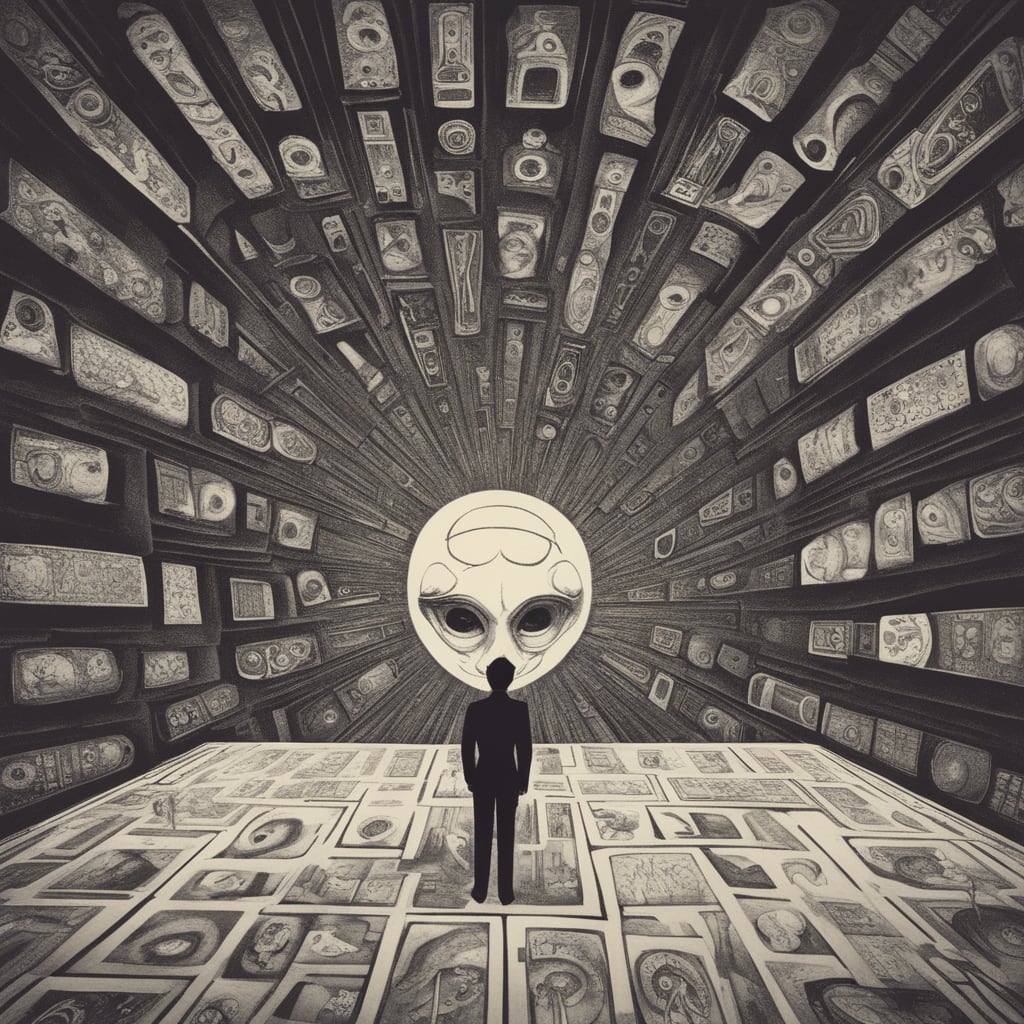Unlocking the Enigmatic Mind: A Journey Through the Mysteries of Human Psychology
Unlocking the Enigmatic Mind: A Journey Through the Mysteries of Human Psychology

The human mind, a labyrinth of enigmas, remains one of the most compelling frontiers of exploration for psychologists and thinkers alike. In our quest to understand the intricate workings of the psyche, let's embark on a captivating journey, delving deeper into the mysteries of the human mind.
1. The Depths of the Unconscious
At the heart of the human psyche lies the enigmatic unconscious mind. Freudian psychology posits that beneath the surface of our conscious awareness, hidden desires and fears shape our thoughts and behaviors. Imagine the unconscious as a vast, uncharted ocean, with thoughts and memories lurking beneath its depths, occasionally surfacing like elusive sea creatures.
Freud's revolutionary concept of the iceberg metaphor illustrates this complexity. He proposed that our conscious mind, the tip of the iceberg, represents only a fraction of our mental activity. Below the surface, hidden in the murky waters of the unconscious, lie repressed memories, primal instincts, and unresolved conflicts. These submerged elements can influence our thoughts, emotions, and actions without our conscious awareness.
2. The Intricacies of Memory
Memory, a cornerstone of our identity, conceals its own mysteries. Consider the concept of repressed memories, where traumatic events are buried in the recesses of the mind. Picture a scenario where unlocking these memories is not just a psychological breakthrough but a path to healing and self-discovery.
Repressed memories, often associated with experiences of trauma or distress, have intrigued psychologists for decades. The phenomenon suggests that our minds can protect us from overwhelming emotional pain by burying distressing memories deep within our subconscious. These memories, like sealed vaults, hold the potential to impact our mental and emotional well-being.
Therapists who specialize in memory recovery work with patients to explore the contents of these sealed vaults. Through techniques like hypnotherapy or guided imagery, individuals may access and process long-buried memories. While the accuracy and reliability of repressed memories have been subjects of debate, their existence underscores the intricate relationship between memory and the human psyche.
3. The Enigma of Perception
Perception forms the lens through which we interpret the world. Optical illusions challenge our understanding of reality, demonstrating how our brains can be deceived by visual cues. Envision a world where perception is fluid, and reality constantly shifts, blurring the line between what's real and what's imagined.
Optical illusions, such as the famous "impossible triangle" or the "Rotating Snakes," reveal the intriguing ways our brains interpret visual information. These illusions exploit the brain's tendency to fill in gaps and make assumptions about the visual stimuli it receives.
The concept of perception goes beyond mere visual illusions. It encompasses how we interpret sensory information from our environment. Imagine a scenario where individuals experience a phenomenon called "synesthesia," where their senses intertwine, causing them to see colors when they hear music or taste flavors when they touch objects. This blending of sensory experiences challenges our conventional understanding of perception and adds a layer of complexity to the mysteries of the human mind.
4. The Power of Conditioning
Behavioral psychology unveils the power of conditioning, where simple associations can shape complex behaviors. Imagine a narrative where individuals undergo experimental conditioning, revealing the extent to which our actions can be influenced by external factors.
The concept of conditioning, famously studied by Ivan Pavlov and B.F. Skinner, explores how behaviors can be shaped through associations and consequences. In Pavlov's classic experiment, dogs learned to associate the sound of a bell with the arrival of food, eventually salivating at the mere sound of the bell, even in the absence of food. This simple example illustrates the power of conditioning to influence behavior.
5. The Dance of Emotions
Emotions, the driving force behind human actions, harbor their own enigmas. Consider the intricate interplay of emotions in relationships, where love and jealousy, joy and sorrow, entwine like characters in a dramatic story. Explore the complexities of emotional intelligence as individuals navigate the emotional landscape.
Emotions are a central aspect of the human experience, influencing our thoughts, decisions, and interactions. The mystery lies in their origin, regulation, and expression. Psychologists have long sought to understand the underlying mechanisms of emotions and their impact on human behavior.
6. The Quest for Self-Actualization
Psychologist Abraham Maslow introduced the concept of self-actualization, the pinnacle of human development. Imagine a journey where individuals strive to reach their full potential, transcending their limitations and achieving a state of profound self-awareness.
Maslow's hierarchy of needs suggests that human beings have a hierarchy of needs, with basic physiological and safety needs at the foundation and self-actualization at the pinnacle. Self-actualization represents the realization of one's full potential, characterized by personal growth, creativity, and a deep sense of fulfillment.
Individuals on the path to self-actualization embark on a journey of self-discovery, seeking to understand their unique talents, values, and purpose in life. This quest for self-actualization can lead to profound personal transformation and contribute to a deeper understanding of the human psyche.
7. The Mystery of Creativity
Creativity is a uniquely human trait, yet its origins remain shrouded in mystery. Dive into the minds of creative geniuses, exploring the sparks of inspiration and the moments of artistic revelation. Imagine a world where creativity is not just a talent but a portal to new dimensions of thought.
The phenomenon of creativity has fascinated scholars, artists, and scientists throughout history. It represents the ability to generate novel ideas, solutions, and expressions that enrich human culture and innovation.
The creative process often involves moments of insight, where ideas seem to emerge from the depths of the mind. These "aha" moments, whether in art, science, or everyday problem-solving, highlight the mysterious nature of creativity. Researchers have explored the cognitive processes that underlie creativity, revealing the intricate interplay of conscious and unconscious thinking.
8. The Paradox of Free Will
In the philosophical realm, the question of free will versus determinism continues to perplex. Explore a narrative where individuals grapple with the concept of free will, questioning whether their choices are truly their own or predetermined by external forces.
The concept of free will suggests that individuals have the capacity to make choices that are not determined by external factors or fate. It implies a sense of autonomy and responsibility for one's actions.
However, the paradox arises when we consider the influence of various factors on our choices. Psychologists have explored the role of genetics, upbringing, environment, and social conditioning in shaping our decisions. The interplay between these influences and individual agency raises profound questions about the nature of free will.
As we navigate the labyrinthine corridors of the human psyche, each twist and turn reveals new wonders and enigmas. The human mind, with its layers of consciousness, memories, and emotions, remains an inexhaustible source of fascination. These psychological mysteries, like chapters in an unfolding story, invite us to ponder the depths of our existence and the endless possibilities within our own minds.






Comments (1)
Oh wow! This is great! I didn’t know you had to eat human brains to get smarter! Thanks for the information! Amazing to learn! Enigmatic…